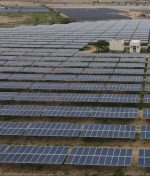
India’s Energy Independence
India’s Energy Independence
India’s Energy Independence!
15th August, 2019, the country is celebrating 72 years of India’s independence. With several political changes and the removal of article 370. Several reforms have taken place over the years but are we really independent? Energy is one major aspect of economic development and needs a long term environment friendly approach.
What is Energy Independence
Regardless of which country you live in, look around and what do you see? You’ll probably see cars and trucks on the road. What powers all these vehicles? The gas and diesel used to power them is derived from petroleum. When a country is able to produce enough of its own fuel, electricity to meet its own demands, then it is referred to as being energy independent. Energy independence is something that all large and energy-rich countries are attempting.
Why Energy Independence?
Today, over 80 percent of world petroleum reserves are state-owned and controlled by countries that have the power to manipulate supply and price with impunity — this fact goes directly to the heart of energy security. As a country we must get united in the desire for lower gas prices and less dependence on foreign sources of energy to fuel our growth. What that means to most people is developing domestic oil, gas, wind and solar. But it also means taking full advantage of the hidden energy such as Solar, and converting that natural resource into electricity.
India’s Present Energy Scenario
Our Prime Minister Shri Narendra Modi envisions to bring down the nations oil import dependence from 77% in 2013-14 to below 70% by the time India is celebrating its 75th year as an independent nation.
The oil consumption is India has grown from over 184 million tonnes in 2015-16 to over 211 million tonnes in 2018-19. While the demand for oil is on a constant increase, India’s crude oil output is falling.
The central government is working on promoting Solar Energy, increasing domestic oil production and energy conservation by several means in order to reduce the nations dependence on imported crude oil.
Fossil Fuel Dependence
Indian economy is largely dependent on coal, responsible for over 40% of carbon emissions from fossil fuels. Coal mining has several side effects on the climate as well as human health. Handling climate change and becoming independent in true sense is impossible without curtailing our dependence on fossil fuels especially the ones we are required to import in large quantities. Even though the government is making a lot of efforts to increase the generation of renewable energy such as Solar in India, coal still dominates the power generation sector.
Energy – an essential building block of economic development
The Indian energy sector has seen a dynamic growth trend in terms of capacity addition, reforms, exploration etc. But the ever increasing demand due to excessive urbanization and increasing population are failing the growth in energy supply, forcing the nation to rely on imports.
Development at the cost of climate change
India is determined to lift its majority population up to modern standards of living. Calling for large amount of energy, required for for manufacturing, education, health care, transportation etc to support the growth system. But India still plans to do this rapidly by relying on cheap coal. We as Indians need to curtail the use of fossil fuel based energy and look for true independence of the nation in all aspects.
Creating renewable, sustainable energy sets us on a road to permanent energy independence by:
-Reducing dependence on foreign fossil energy, strengthening national security
-Lowering spending on policing global energy supply
-Creating domestic green jobs
-Enhancing India economic growth
-Building the foundation for a clean-energy economy
-Relying on renewables such as Solar
India’s green shift to renewables
The country is turning bolder on renewables, but traditional sources of energy need an aggressive turnaround to ensure our energy independence. We have to limit fossil fuel development given the threat of climate change. Renewable energy sources such as Solar have an important role to play in India’s economic growth in a positive way. The country is making a big bet on Solar to be its future by committing to develop 100 GW by 2022. We as the citizens of India have to once again work together for our energy independence, and be an Independent nation in true sense.




